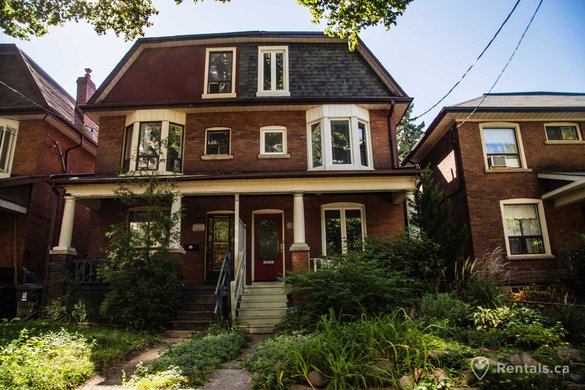
The city has earmarked $2 million to establish such a program this year, though staff recommendations aren’t expected to be revealed until June. Toronto councillors, last fall, asked the city’s housing secretariat to explore the potential of creating a small rental housing acquisition program, with dedicated funding and financing for land trusts or other non-profits. They take one building off the market at a time, when they can afford it - as governments flirt with the idea of creating new programs to acquire and protect affordable homes on an ongoing basis. With Toronto’s steep real estate prices, the trust’s work is slow. Existing rents range from $600 to $1,600 a month. Their plan is to spend the next three years trying to nail down long-term grants and financing, to be able to offer any empty units at 90 per cent of the average market costs, while maintaining the rents of existing tenants. The building cost $7.55 million, Barndt says. It had no government backing this time, raising $2.6 million from investors to get a 36-month loan from Vancity Community Investment Bank. The trust bought its first residential building in 2019 with funds from a city pilot project. Their trust has more than 800 members, he added, who elect a board of directors to act on their behalf. “We bring property from private ownership into community ownership, and we can make decisions about how it’s used and who can access it,” Barndt said. A trust in Kensington Market made its first purchase this spring, and Barndt says interest has been piqued in Little Jamaica and Jane and Finch. “In the absence of government programs that support this type of work, it’s common sense … we’ve secured the building.”Ĭommunity ownership of affordable real estate is a model that other Toronto areas, anxious about gentrification, have started to eye. “Our rental housing stock is under attack, by predatory landlords who are purchasing the rental buildings in our community, upscaling them, and often displacing residents into homelessness,” said Joshua Barndt, executive director of the Parkdale group. The new owners are the Parkdale Neighbourhood Land Trust - part of a growing movement of community-based groups who are taking affordable housing acquisition and preservation into their own hands. Instead, when the building sold this spring, LaLiberté was elated. With rent costs that still fall below $800, hers is the kind of building that housing affordability advocates normally fear being sold - lest it be scooped up and renovated to turn higher profits, chipping away at Toronto’s limited affordable housing supply. Her rent has stayed low, with only modest annual increases. The 36-unit apartment has been home ever since. The sound of chimes floated in from time to time, from a Buddhist temple just down the street.


But it was clean, with terracotta floors and a backyard to share. The unit was just 268 square feet in all. It was the break she’d been waiting for, after spending months scouring the rental market for something she could afford with a fixed income of disability payments. Seven years ago, Anne Marie LaLiberté was living in a Toronto women’s shelter when she came across a rare opportunity: a bachelor apartment in Parkdale with rent of just $650 a month.


 0 kommentar(er)
0 kommentar(er)
